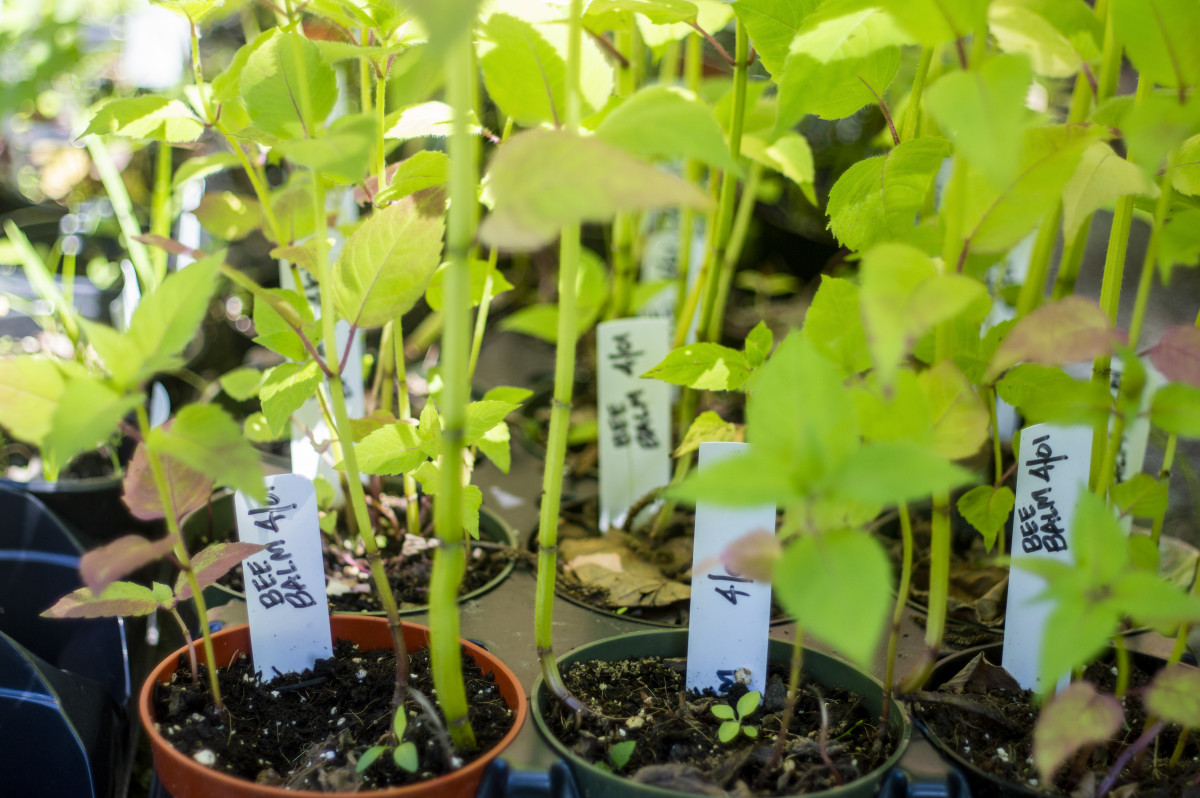As Chautauquans settle in for a blooming summer season, the Bird, Tree & Garden Club asks them to think long-term when it comes to their gardening — specifically with the use of plants native to Western New York.
BTG will be throwing its annual Native Plant Sale from 9 a.m. to 1 p.m. Tuesday, June 28, in Bestor Plaza alongside the Bestor Fresh Market. It is the first one since 2019.
Amanda’s Native Garden Perennial Plant Nursery will be supplying the plants this year with over 15 featured native perennials, including swamp milkweed, cardinal flower and Dutchman’s breeches. Customers can take their pick from the various, inexpensive plants and bring them home in one-quart containers.
BTG suggests Chautauquans get to the sale early, as they often sell out within the first hour of the event.
Chairman of the Native Plant Sale and BTG member Chris Flanders thought it only fitting to have Amanda’s Native Garden supply this year’s sale, as the family-owned company was involved with the first Native Plant Sale in 2015.
“Her plants are always just exquisite,” Flanders said. “Amanda’s is good, certified organic, and their plants made us all feel good in the past. We thought for old time’s sake, we would go back to Amanda’s for the first one back.”
Ellen Folts, owner of Amanda’s Native Gardens, said the plants they plan to bring are at least two years cultivated.
“This year, things bloomed spectacularly, not just as compared to last year, but two years previous to that,” Folts said. “Some things are blooming a lot longer than they used to, and it’s just different with the warmer weather.”
Folts considers native plants as a long-term investment for garden health.
“They’re already adapted to the climate and are best able to survive here,” Folts said. “These plants also are growing from seed. If you’ve left your plant seed in the garden, you’re likely to have more genetic variations to help them adapt in climate change, or from different disease and insect pressures.”
With their annual sale, BTG aims to motivate Chautauquans to get their hands dirty.
“We wanted to make gardening more personal, something where they really had some control over,” Flanders said. “People kind of like taking their babies home and putting them in themselves.”
Aside from providing Chautauquans with access to native plants, BTG created this event to educate people on monarch butterflies and how they can help them during their migration months.
“When (monarchs) first come north again from Mexico, it’s important to have food last during the summer for pollinators, and also into the fall because this is where they all leave from to go to Mexico,” Flanders said. “We’re trying to teach people about blooming something all the time for pollinators.”
BTG has previously worked with monarch butterfly conservation groups to ensure the Institution’s gardens are certified monarch habitats.
Butterflies aren’t the only motivator for the plant sale; Flanders highlights the importance of investing in the native Chautauqua landscape, rather than seeding transient crops.
“We’re talking about habitat, we’re not talking short-lived blooms,” Flanders said. “People are so used to putting rather exotic, grandly blooming things that just bloom during the summer and are gone because they were annuals. We want to put people into thinking a little bit more permanently for Chautauqua’s grounds.”
Native plants are well-suited for rain gardens, which are low-level plots complete with deep-rooted, water-loving plants. They are designed to soak up natural run-off and filter harmful chemicals from water before it moves into the soil and, in turn, the lake.
Many Chautauquans with lakeside properties have implemented rain gardens to reduce chemical and sediment inputs into Chautauqua Lake, which is considered impaired by algae and excessive nutrient deposits.
“In order to be responsible people, we really need to go into the environment, and using native plants is one of the ways to do that,” Folts said. “Rain gardens are not just so important for keeping the phosphorus out of the lake, but they act as a buffer, keeping all the debris out of the lake. It really can keep the lake water much more clean.”
Master gardeners will be at the event to help patrons find the perfect plant based on their property. Curious customers can also call Amanda’s Native Gardens or go to their website, www.amandasnativeplants.com, for advice on plant care.
Looking forward to this season and the summers to come, Flanders urges Chautauquans to adapt to the changing climate and help keep the grounds a haven for pollinators.
“The grounds are changing, we’re changing,” Flanders said. “We are trying to help people change it. We’ve got more people with their hands in the dirt now than we ever have before. It’s great.”





